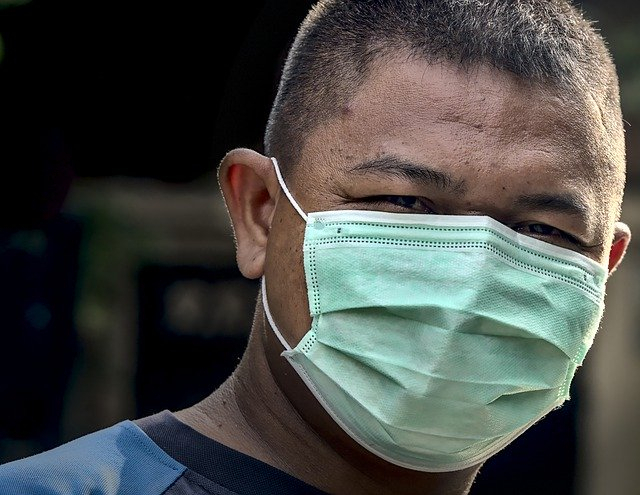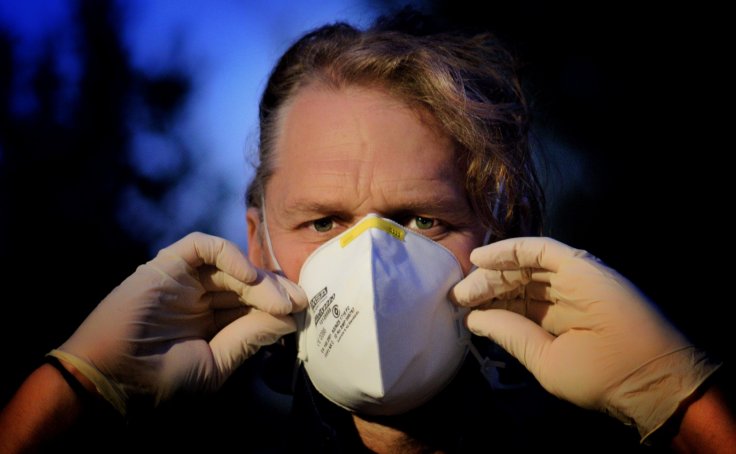There has been a long debate about using face masks. People have been asking on social media which kind of masks they should use and whether only N95 masks can help to prevent the Coronavirus. But there are many who refuse to wear a mask, despite earlier recommendation made by the World Health Organization (WHO).
While the western countries have long stigmatized mask-wearing, Asia has made it a habit of wearing masks in public places, whenever they're suffering from mild cold or flu. The cultural etiquette in Japan and other Southeast Asian countries makes it a social responsibility for those suffering from cold or flu, not to spread it further to other people.
But, US President Donald Trump, who criticized WHO, on Tuesday said: "We want our country back. We're not going to be wearing masks forever." He made these comments when he was asked whether the US considers calling on Americans to wear masks as the coronavirus pandemic continues to ravage the nation. His comments essentially signalled that he was not comfortable with the idea of putting a mask on the face.
Even the US Centers for Disease Control and Prevention (CDC) is rethinking about a new guideline that says people who aren't sick or caring for someone, need not wear face masks when they venture out in public. Since the coronavirus is asymtomatic for over 10 days, they may not look suspicious but effectively spread the virus in the vicinity.
However, there's an exception here too. On Monday, California's Riverside County Sheriff Chad Bianco warned the residents that those residents who are seen in public places without covering face could face a fine as well as imprisonment for violating the recommendation during the Coronavirus crisis.

Using mask during Coronavirus pandemic
It's all in culture, say anthropologists. For an American, it looks weird to see a compatriot in a grocery shop wearing a mask but for Japanese or people in other South East Asian countries, it will be shocking to see another person without a mask, especially during the outbreak. Does it mean he is willingly spreading the invisible virus?
Mostly East Asian people who have been staying in the US and other Western countries earlier said that they hardly see people wearing masks while it became a habit for them back home. Christos Lynteris, a medical anthropologist at the University of St Andrews in Scotland, said, "In the West, I think we need to overcome—I wouldn't call it a fear of the mask, but [the] stigma with a mask."
He added that "I've heard people say, 'I was carrying a mask in the aeroplane but I was too ashamed to wear it.' Where does this shame come from? Is it because people will think you are a wimp? Because people will think you are ill?"
But Dr Cameron Kaiser, who is the public health officer at California's Riverside County, differs. He has banned all gatherings of "any number of people" other than relatives living together in the same home. He ordered everyone to wear a face-covering outside their homes including bandanas, scarves and "clothing that does not have visible holes." So, there's need for a change in attitude.

WHO adds to confusion?
The Geneva-based World Health Organization has different inputs. It has reviewed its position on masks in light of data from Hong Kong which indicates that the use of the masks in the community may have reduced the spread of the virus in some regions.
But in a report, the WHO said while masks could help limit the spread of COVID-19, they were insufficient on their own. At the same time, the world health body cites another newly published report that there is no evidence that wearing a mask in the community prevented healthy people from being affected by respiratory infections including new Coronavirus.
Professor David Heymann of the London School of Hygiene and Tropical Medicine, who chaired the WHO's scientific and technical advisory group for infectious hazards, mentioned that unless people were working in healthcare settings, masks are "only for the protection of others, not for the protection of oneself." Does it mean, those asymptomatic patients have a passport to spread it to others, though unknowingly?
As per WHO's updated advice, people with coronavirus symptoms should wear a face mask, self-isolate and seek medical advice as soon as find out symptoms, while people living with them should wear a face mask when they are in the same room. However, this advice again leaves a major gap as it doesn't apprehend any threat from asymptomatic pre-stage patients who are a potential threat to others.
William Keevil, a professor of environmental healthcare at the University of Southampton said, "Cloth masks and poor quality surgical face masks will not filter fine respiratory droplets, and certainly not aerosols, which some are now claiming to be an infection risk," and added that "the major question that needs to be addressed is: what about protecting the eyes, a known route of entry?." Perhaps, wearing goggles or spectacles will be required when you venture out, besides a mask.








